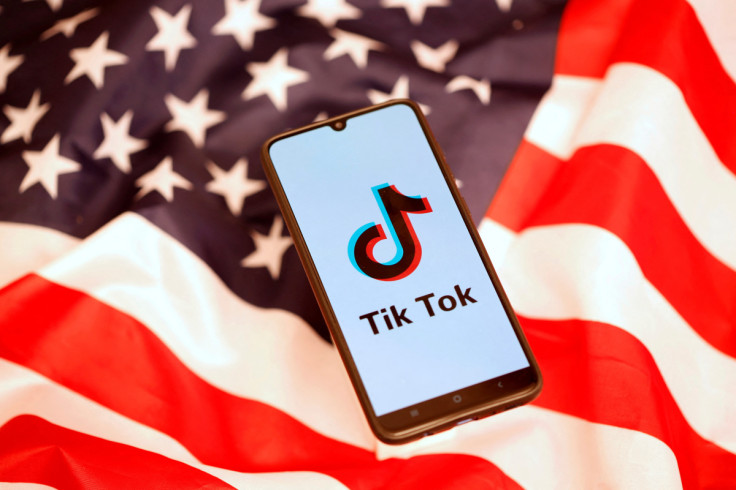Chinese TikTok Seller Says He's On The App 'To Rip People Off': Report
KEY POINTS
- The scammer said his "main tool is ecommerce in short videos and livestreams for the Americas"
- He added said it was "pretty easy" to bypass TikTok guidelines
- The Better Business Bureau had warned users to be cautious while buying products sold on the app
Some scammers in China are allegedly using TikTok to make money off of unknowing users, a new report has revealed.
The news comes as the ByteDance-owned app is at risk of getting banned in the U.S. due to national security concerns.
"I do TikTok to rip people off. My main tool is ecommerce in short videos and livestreams for the Americas," TikToker Mo Huabin said in a January video posted to Douyin, the Financial Times (FT) reported Tuesday.
Douyin, ByteDance's short video app for Chinese citizens, is where Mo posts about how he uses TikTok to market his business.
Mo's company sells enzyme coffee, which is marketed through TikTok videos that show "faked before-and-after shots of incredible weight loss" and nodding physicians, as per FT. The coffee sells for $124 that claims it would make them drop between 30 and 60 pounds. It comes with a "3 treatment" plan for buyers.
Mo told FT he was joking in the video and had no plans of selling products that trick people. He also told the outlet there was "nothing special" in his "regular coffee" products.
"I have no idea why it became so popular," he said.
Cottage industry of Chinese scammers target TikTok https://t.co/JIrpbWPOxs
— Financial Times (@FT) April 25, 2023
Mo said it was "pretty easy" to bypass TikTok rules and "if accounts are closed we can sometimes get them reactivated or just set up new ones."
He said going viral was easier on TikTok than on Instagram and YouTube.
ByteDance has since removed Mo's main Douyin account, as per FT, but his two other accounts with similar handles and tutorials on TikTok tactics were still online.
"TikTok prioritizes profit over the regulation of goods on its platform," said a senior executive who was familiar with decision-making in the e-commerce unit of TikTok.
Three employees also told the outlet that cleaning up fraudulent content and monitoring merchants seems to have been pushed aside as the app moved for profit.
FT found multiple seller accounts that violated ByteDance's guidelines. Some of the products were weight loss tea and coffee, as well the prescription drug and acne medication Tretinoin.
Mo said his team's focus was now on selling legal goods on the TikTok Shop, which began testing in the U.S. in November.
Los Angeles-based Dr. Dana Brems, whose clips were often featured on videos posted by Mo's group, said the clips were used without her consent. She had flagged the weight loss coffee and male enhancement videos weekly, but TikTok's system usually concluded the videos were not in violation of its policies, FT reported.
TikTok, however, says it prioritizes user safety and content authenticity.
"As we make clear in our Community Guidelines, we seek to remove any content that seeks to exploit the trust of our users for personal benefit, and that includes scam-related content. Users with repeated violations may have their accounts banned," the company said.
Earlier this year, the Better Business Bureau warned shoppers to be cautious before purchasing through the app.
"When shopping on TikTok we recommend you do some research before making a purchase," said Nick Hill of the BBB's eastern North Carolina office, CBS affiliate WNCN reported.
Hill further recommended that TikTok shoppers use terms like complaint or scam with the name of the product when researching online to make sure there was no history of scams or complaints related to the product.
Also, earlier this year, CEO of dietary supplement company Primaya, Pichnaree Tantiwit, was charged by Thai authorities with fraud and dissemination of false information in a computer system, the Bangkok Post reported.
The charges were made in response to a TikTok video by Ratchanan "Noomnim" Muangprathet, a close aide of Pichnaree. In the video, Ratchanan attempted to get people to invest in Primaya's dietary products.
Ratchanan allegedly claimed in the TikTok video that people who invest 6,000 baht (approximately $175) could earn as much as 15 million baht (approximately $437,900). Thai police said Primaya products appeared to be of substandard quality, as per the Post.
Pichnaree has denied playing a role in the alleged TikTok scam.
Another company flagged for alleged "unrealistic" promises of weight loss was Kilo Group, which, non-profit Media Matters for America said, was TikTok's largest weight loss advertiser.
Media Matters said Kilo Group spends most of its TikTok ads funding on ColonBroom and BeyondBody, two of its weight loss arms.
"Both companies utilize similarly misleading marketing tactics by promising rapid weight loss and body transformations."
News of the scams on TikTok comes as U.S. lawmakers push for the short video app to be banned in the country over alleged national security risks.
TikTok CEO Shou Zi Chew appeared before Congress last month as the White House demanded ByteDance sell the social media platform's stakes to an American entity or get banned.

© Copyright IBTimes 2024. All rights reserved.






















